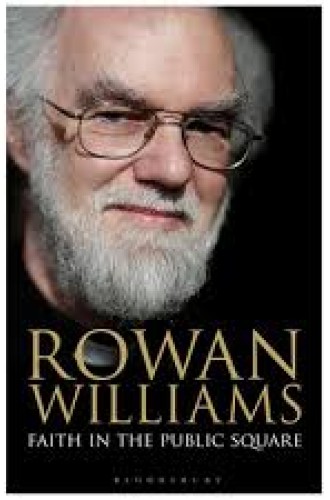Faith in the Public Square, by Rowan Williams
Rowan Williams never set out, as archbishop of Canterbury, to be an energetic chief executive of a flailing denomination. He saw himself much more as an interpreter—between one religion and another, between faith and unbelief, between civil society and politics, and between the West and the two-thirds world. He knew there was no one better placed in public life in England (and perhaps beyond) to speak to issues of common concern without the need to be popular, simplistic, reductionist, or eye-catching. He could be intelligent, probing, compassionate, generous, challenging, bold, even-handed, reflective, and a little playful—as he is in this collection of 25 lectures.
So what does he want to say? More than anything else, that there’s an honorable and needed place for religion in public life. That means making a distinction between programmatic secularism and procedural secularism. The latter, which Williams favors, assumes a crowded and argumentative public square and thus requires an honest broker to mediate and manage genuine difference. The broker must hold a high view of respect for law as that which enables vibrant diversity to flourish and that fosters a society that is greater than the sum of its parts.
Programmatic secularism is, by contrast, the great enemy in the book: it seeks a merely instrumental liberalism and aspires to little more than maximized choice, rendering the human subject a lone figure facing a range of options, any of which may be adopted but none of which has any public validity—and it perceives religion as no more than such an isolated and private choice. In such a perspective, “conviction is free, . . . but visible and corporate loyalty to the marks of such conviction is to be strongly discouraged.”






